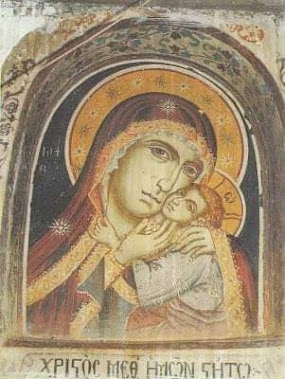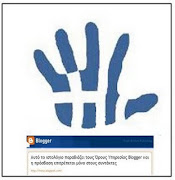The amazing pilgrimage of Russian businessman-turned-monk, Athanassios
There is plenty of time and space for contemplation and prayer for the monks, such as the one seen above, at Mount Athos as well as the thousands of visitors that the monastic community draws every year.
STAVROS TZIMAS
In
Vladivostok in 1990, the winds of glasnost and perestroika had begun to
blow into the furthest reaches of Siberia and the major naval base of
what was then the Soviet Union.


People
were speaking freely, making small fortunes and attending without fear
the few churches that had escaped Stalin's terror, in a general trend
toward the spiritual, seeking hope in religion.
Yevgeny
Pushenko, then aged 34, grabbed the opportunity provided by the "spirit
of Gorbachev" to open a clothing factory employing more than 50
workers. That is, he became a minor capitalist. His future seemed rosy
since business was doing well and who knows what might have been if
"something terrifying" had not happened to him.
"I felt a terrible need to get close to God," he said.
There
was nothing unusual about this; it was a feeling shared by millions of
other Russians who had never really shed their Russian Orthodox faith
under the Bolsheviks.
The decision
So
one day, Pushenko gathered his friends together, handed out vodka and
declared that he was giving them his factory, without explaining why.
They found out the next day when Yevgeny astounded his father Anatoly
and his mother Natasha with his decision to give up everything and
become a monk.
His
parents were even more shocked to hear that within a few days Yevgeny
would be setting off on foot for Jerusalem on a pilgrimage to the Holy
Land. Three days later, he set out from Vladivostok on a journey that
was to take three years before he reached his destination, having
covered 15,000 kilometers.
He
crossed the Ural Mountains to Moscow, walked on down through the
Ukraine into Romania, crossed the Danube into Bulgaria and then over
into Greece, moving east toward Turkey, then down through Syria, to
arrive in the Holy Land at Easter of 1993.
"I
did it with God's help," Pushenko told Kathimerini in his first media
interview, despite many appeals from the Russian press. He now lives in
the monastic community of Mt Athos, as the monk Athanassios.
"It
was a spur-of-the-moment decision. If I had thought about it, I
wouldn't have dared do it. Great decisions are made in the heat of the
moment. I took with me two pairs of shoes, a few clothes and very little
money, just as much as I would need to get visas in Moscow, since the
Soviet Union had not yet restored relations with the outside world, and
just enough to get me by," he said.
Pushenko explains how he walked day and night, sleeping very little.
"I
walked through Siberia under very difficult conditions, walking through
snow and mud. So as not to get lost, I followed the highway. I had to
walk 2,000 kilometers through ravines and forests, walking on the
Trans-Siberian express train lines, when there was no highway," he
relates.
He
said he slept anywhere, in caves, abandoned houses, churches. He ate
fruit, vegetables, roots, and was sometimes fed by people in villages he
passed.
"However, I never asked for food as I was a proud man," he said.
Pushenko
not only had to confront the terrible weather conditions and the
exhaustion but the suspicion of the authorities who at best regarded him
as quaint or crazy and, at worst, as a spy.
"I
was often dragged off to police stations for questioning, since no one
could comprehend why I would want to walk all the way to Jerusalem," he
said.
When
we asked him why he didn't retire to a monastery in Russia or attend a
church back home to pray instead of taking such a dangerous journey, he
explained:
"I
wanted to be purified, God led me like a little dog out of the mire of
my sins," said the man who, until his enlightenment, had lived the life
of an ordinary Russian Christian.
Russians' faith
It
would be easy to brand Pushenko as a crank and it would be unfair. This
is the nature of the RussianRussian is to make a pilgrimage to the Holy
Land, to Mt Athos or to Bari, in Italy, where lie the remains of the
Russians' "saint of saints," Nicholas. Prior to the Bolshevik
revolution, millions of Russians made pilgrimages every year to
Jerusalem, Mt Athos and southern Italy. Once a week, a ship sailed from
Odessa for Mt Athos bearing tourists. Another boat subsidized by Russia
sailed between the little port of Dafni to the Russian monastery on Mt
Athos. psyche. The dream of every religious
The
70 years of Communist rule in Russia could not replace the Christian
faith in the hearts of Russians with dialectical materialism. When the
regime fell, the people turned to the religion which they had never
really rejected for the sake of state ideology. They flocked to churches
and built monasteries; the Russian Orthodox Church acquired enormous
power, the Communist leader Gennady Zhuganov often met with Patriarch
Alexei; it is said that Vladimir Putin has his own confessor at a
monastery outside Moscow and that astronauts take off into space wearing
an icon of the Virgin around their necks.
Yevgeny
Pushenko succeeded in walking all the way to Jerusalem. Thousands of
the faithful form caravans from Moscow to the "golden circle" formed by
dozens of monasteries around the Russian capital, while more daring
souls used to walk to Kiev, the religious capital for all Russians.
In
Moscow and Odessa, the sole business of dozens of travel bureaus is to
take thousands of the faithful to Mt Athos, the Holy Land and Bari. The
Russian Orthodox Church directs a powerful religious tourism industry
that brings in huge profits and has even greater political influence.
As
for Yevgeny Pushenko, he has more than fulfilled his dream as a good
Russian Orthodox Christian. He walked all the way to the Holy Land and
in 1996 arrived, as the monk Athanassios, at Mt Athos, where he built
his own hermit's cell at Karoulia, the community's famous hermitage.
From there he communicates with the outside world, as do many other
monks at Mt Athos, by mobile telephone.








































































































Δεν υπάρχουν σχόλια:
Δημοσίευση σχολίου